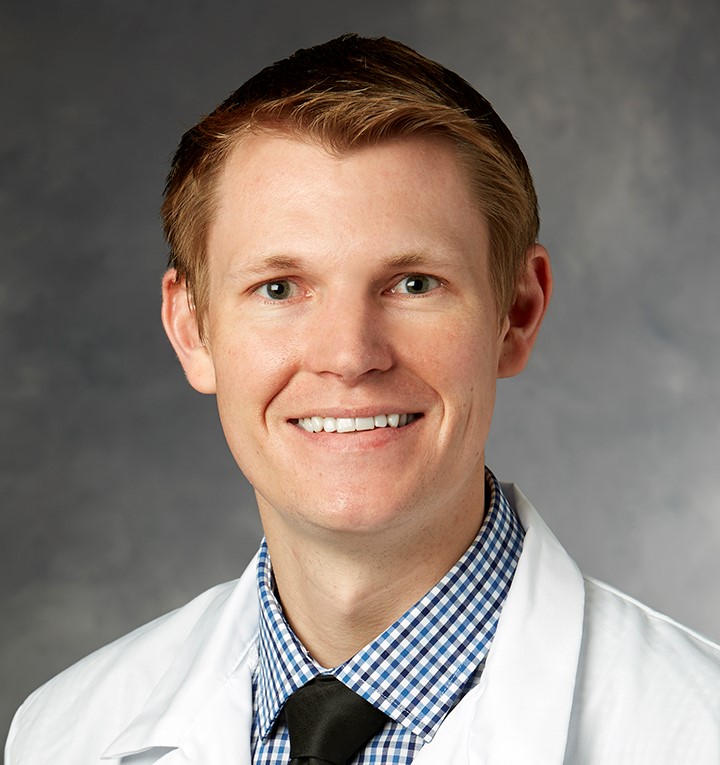
Dr. Moding, recipient of the 2020 Young Investigator Award
Which patients respond to radiation treatment and why? That’s the question that Everett Moding, MD, PhD, is trying to understand.
Dr. Moding, recipient of the 2020 GO2 for Lung Cancer / ASCO Foundation Conquer Cancer Young Investigator Award, is looking to genetics and tumor characteristics to help guide when radiation is likely to be an effective treatment for lung cancer and at what dosage.
“The goal of the project is to get a better understanding of what determines which patients are going to respond well to radiation treatment,” said Dr. Moding. “If we can better understand how an individual patient is going to respond, then we can do more personalized therapy in the future.”
Dr. Moding and his colleagues are using a technique called circulating tumor DNA, which lets a researcher look for genetic mutations in a patient’s blood. Using a simple blood draw is quick and easy for the patient while at the same time giving researchers biomarkers before, during, and after radiation—and insights into the tumor.
Building Long-Term Relationships
Dr. Moding’s interest in oncology was forged early in life when his mother died of pancreatic cancer.
“I’ve been driven to the field of oncology and cancer research in hopes of helping out patients in similar situations to potentially give them better outcomes,” he said. “I also want to provide them with support as they go through everything that goes along with cancer treatment.”
Dr. Moding added, “I love the long-term relationships that you build with patients.”
A radiation oncologist by training, Dr. Moding just completed his residency at Stanford University and is in the process of transitioning to the faculty there. He received his BA in biochemistry from Colorado College and his MD/PhD from Duke University School of Medicine. He studied the mechanisms regulating tumor response to radiation therapy.

Leave A Comment